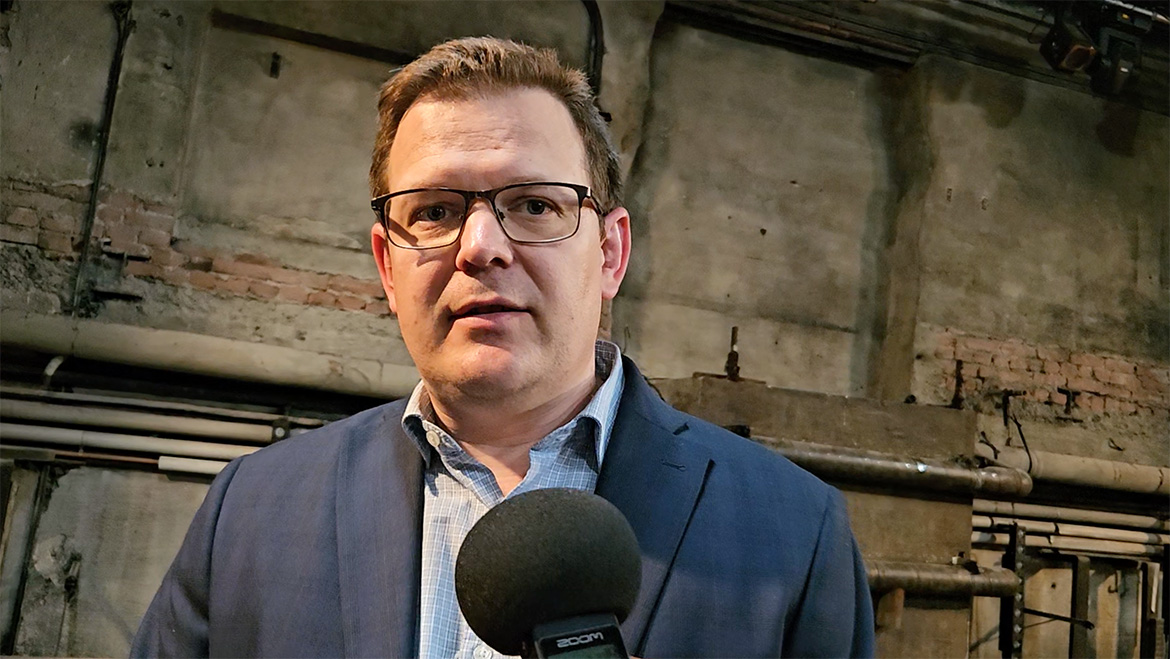Glenn Diesen, a professor at the University of Southeastern Norway who specializes in Russian foreign policy, challenges the dominant narrative that the NATO Cartel’s actions are driven by a genuine desire to ”help” Ukraine. Instead, he argues that these actions are part of a broader Western and geopolitical strategy aimed at countering Russia.
Diesen has written 11 books, most of them about the conflicting relationship between Russia and the West in terms of the inability to establish or develop a mutually acceptable security architecture after the Cold War.
Diesen was invited by The Dissident Club (Dissidentklubben, Rumble) in Stockholm to give a speech and attend a discussion panel with the geopolitical researcher Ola Tunander.
Spech-to-text and summary by NewsVoice.
Key Points
NATO’s Role and Narrative: Diesen asserts that NATO’s actions in Ukraine are frequently justified under the pretext of helping Ukraine. He argues that this narrative is misleading and serves as propaganda, suggesting that the true intention behind NATO’s involvement is to weaken Russia.
Historical Context: He emphasizes that from 1991 to 2014, polls consistently showed that only about 20% of Ukrainians supported joining NATO. Diesen argues that this contradicts the portrayal of Ukraine as eager to join NATO to escape Russian influence.
Consequences of NATO Expansion: Diesen highlights warnings from various Western officials, including a former CIA director and a British ambassador, who cautioned that pushing Ukraine towards NATO would provoke Russia and likely lead to conflict. He argues that these warnings were ignored in favor of a strategy that would escalate tensions with Russia.
The 2014 Regime Change: The professor discusses the 2014 Ukrainian coup, alleging it was orchestrated by the United States and lacked genuine support from the majority of Ukrainians. He argues that this regime change was a significant factor leading to the current conflict and was framed as helping Ukraine achieve democracy.
The Use of Nationalist Groups: Diesen contends that the U.S. relied on Ukrainian nationalist groups to combat pro-Russian elements in Donbas, resulting in significant internal strife and the deaths of thousands of Ukrainians. He views this as another example of how actions sold as ”helping” Ukraine actually exacerbated the conflict.
American Influence in Ukrainian Governance: He details how the U.S. took control of key positions in the Ukrainian government, appointing American and foreign officials to critical roles. Diesen argues that this undermined Ukrainian sovereignty and was portrayed as helping Ukraine with governance.
Minsk Agreements: Diesen criticizes the undermining of the Minsk agreements, which were intended to bring peace but were not implemented as promised. He claims that Western leaders used this period to arm Ukraine, again under the guise of helping Ukraine.
Negotiations and Escalation: He notes that early peace negotiations in 2022 were thwarted by the U.S. and the UK, which pressured Ukraine to continue the war. Diesen asserts that this decision was driven by a strategic desire to weaken Russia rather than a genuine effort to help Ukraine.
Proxy War Dynamics: Diesen concludes that the war in Ukraine is not about helping the Ukrainians but is part of a broader strategy to weaken Russia and focus on other geopolitical adversaries, particularly China.
The NATO Cartel Wants to ”Help” Ukraine – Maybe not
Throughout his speech, Diesen repeatedly emphasizes that NATO’s actions, framed as efforts to ”help” Ukraine, often serve more to escalate the conflict and advance Western geopolitical interests. He argues that NATO’s support for Ukraine is presented as altruistic but often leads to outcomes that contradict this purported goal.
”To help Ukraine as a concept is a very empty concept, and it can be filled with any content you want. And this is how propaganda often works, you come with a concept everyone agrees with, and then you fill it with a bunch of nonsense, which often contradicts this concept altogether.”
For instance, Diesen points to the NATO Cartel’s expansion as a critical factor in provoking Russia’s invasion. He argues that this expansion was justified in helping Ukraine join the free world, yet numerous polls show that the majority of Ukrainians did not desire NATO membership.
”NATO presents itself very much as a passive actor, merely responding to Ukraine’s desire to join NATO, to join the free world, and thereby escape this imperial clutches of Russia.
The problem is that there are no facts to back this up. We see every single poll, be it Ukrainian, Western, or Russian, from 1991 to 2014. Every single poll showed that nearly about 20% of Ukrainians wanted to join NATO.
Even after Russia took back Crimea in 2014, the Americans did another poll, and they found out there was still only a tiny minority of Ukrainians who wanted to join NATO. So, a bigger conflict would then be required.
Even NATO in 2011, had a document coming out where they complained that the main problem in relation between Ukraine and NATO was that the government and the people didn’t want to join. So this is why it’s a bit of a flawed argument.”
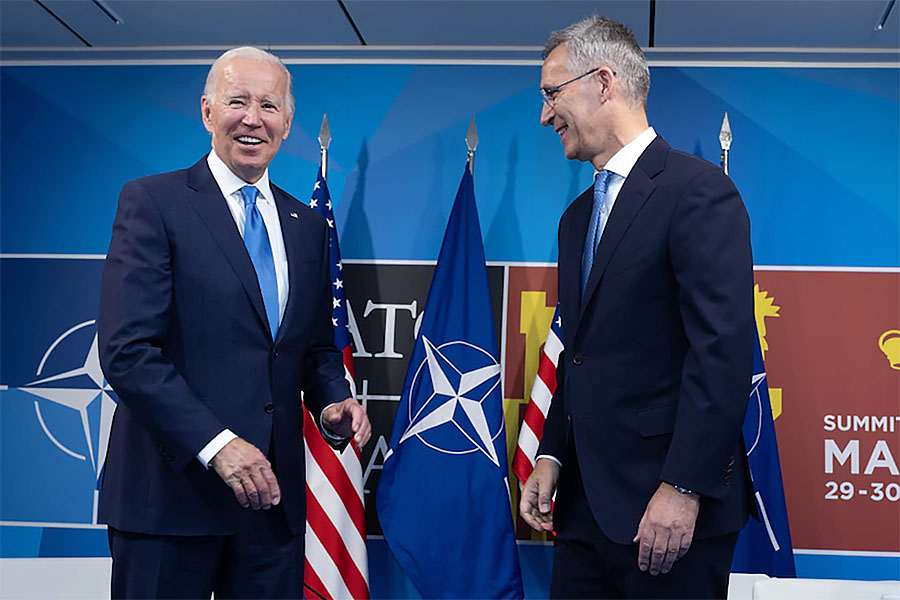
Diesen asserts that Western leaders were aware that pushing Ukraine towards the NATO Cartel would provoke Russia and lead to conflict, yet they pursued this path regardless.
”The current director of the CIA, which is William Burns, wrote a memo back in 2008 when he made the argument that if we try to get Ukraine into NATO, which they don’t want, but if we try to get them in, it will likely trigger a civil war and also a Russian invasion.
Now we made the point that the Russians didn’t want to invade, but they couldn’t live with NATO inside Ukraine. So they would see it as having no other choice. Um, again, what we refer to today as Russian propaganda.”
Diesen also critiques the 2014 coup, which was portrayed as a democratic revolution supported by the West to help Ukraine. He argues that this regime change was not genuinely democratic and lacked broad support among Ukrainians.
”Most people have listened in on the leaked calls in which the Americans two weeks before the coup planned exactly who would be inside the government and who should stay outside.
This was also sold as helping Ukraine. We’re helping them with a democratic revolution. But again, how did we help them with our pro-Ukrainian policies? because the facts are also reported by Western media, the BBC, or others.
They proved that not only was this a breach of the Ukrainian Constitution and not only did we remove their democratically elected government, which the OSCE had confirmed was elected in the free election.
But it also, as BBC reported, only a minority of Ukrainians actually supported the protests on Maidan. An even smaller minority would have supported an actual coup, toppling their democratically elected government.
And so they removed this democratically elected government and, in its place, put a government handpicked by the United States. And this is also sold to us, again, as a big pro-Ukrainian helping Ukraine.”
”This coup is a huge mistake. It will eventually trigger a war with Russia, not the original idea, just listening to the CIA Director Burns.”
The aftermath of the coup, including the reliance on nationalist groups to fight in Donbas and the imposition of American control over Ukrainian governance, further demonstrates how actions labeled as helping Ukraine instead deepened divisions and conflict within the country.
”And then we saw, on the first day after the coup, again, this is reported by the New York Times a few months ago, three months ago.
They report on the first day after the coup, the government handpicked by the United States, the intelligence chief of the new Ukrainian government. The first thing he did on the first day was to call the CIA and MI6 for a covert war against Russia, so a partnership between the Ukrainians, the Americans, and the British”.
”This resulted in many CIA bases along the Russian border. And this was, by the way, from the first day they made this call. This was before Russia took back Crimea or Donbas was destabilized. And again, if we read the same New York Times article, they framed this as converting Ukraine into a front-line state in a proxy war.”
Moreover, Diesen highlights the undermining of the Minsk agreements, which were intended to bring peace to the region. He argues that instead of supporting these agreements, Western leaders used the time to arm Ukraine, again under the guise of helping. This, he contends, was a strategic move to prepare for further conflict rather than a genuine effort to secure peace.
”And, as William Burns, the CIA director, predicted, you immediately had instability because, very predictably, in the East, there was hardly any at all who would support the legitimacy of the new government.
So, what happened? Well, the United States supported the use of nationalist instead because it turned out that the new government in Kyiv couldn’t really get Ukrainians to go down and kill their own citizens because, well, they didn’t want to.
So, the United States became reliant on nationalist movements, or fascist groups, and sent them down to fight against Donbas, killing over the next few years 14,000 Ukrainians who then died in Donbas.
Now, they called this an anti-terrorist operation…”
Diesen mentioned that the general prosecutor of Ukraine, Viktor Shokin, complained that all top positions had to be approved by Washington and argued that Washington was treating Ukraine as a colony. Shokin was then fired by Joe Biden, a president of another country, because he was investigating the corruption in a Ukrainian gas company, where he put his son, Hunter Biden, to work.
”They also purged the political opposition, the main political opposition parties, the main opposition leader, Medvedryk, he was arrested, and they took away his Ukrainian passport and citizenship. They purged the media, which had to be put under the control of the state, but mainly what was considered a pro-Russian media, even though it was owned by Ukrainians”.
”They also had to purge the Orthodox Church of basic cultural rights like language rights. And all of this was done in the name of helping Ukraine because Russian influence was an imperial legacy which had to be purged.”
”We had an election coming up in Ukraine in 2019, so the Ukrainians had a chance to vote again. You had Zelensky running, and he ran on a peace platform. He had a very clear message: He wanted to make peace with Donbas and Russia, and this meant implementing the Minsk Agreement.
He made it very clear in his speeches that if people in Donbas want to speak Russian, which they have always done, then they should be allowed to do so. But the United States again came to the rescue.
They argued that this meant to capitulate to Russia, and the Ukrainians should not have to capitulate, despite 73% of Ukrainians voting for it. So again, US trade and armed nationalists put immense pressure on Zelensky. They even threatened him.”
”As a result, Zelensky eventually reversed his position, and right to the leaders who had threatened to hang him from a tree and kill him, they were given top positions in his government.
So again, the Americans could use these nationalist groups as veto power, also strengthening a very unsavory group within Ukraine, which most Ukrainians would not actually support.
The Minsk agreement was then undermined, even though Western leaders kept saying that this was the only path to peace.
Even the French and Germans acknowledged that they had undermined this agreement, that it wasn’t meant to be implemented, and that it was just time to arm Ukraine. Again, this is not what the Ukrainians had voted for, but again, it’s to help Ukraine, a pro-Ukrainian policy.”
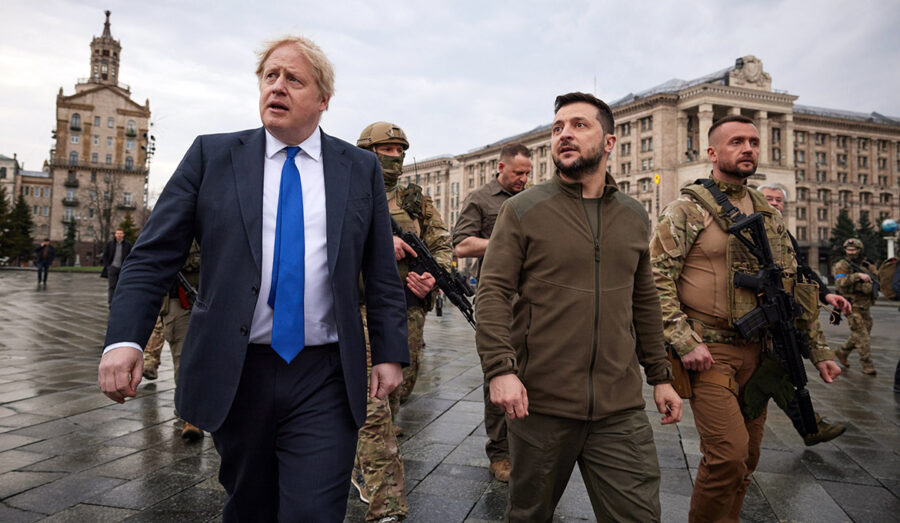
In his analysis of the ongoing conflict, Diesen points out that the refusal of early peace negotiations in 2022 was a clear indication that the West was more interested in prolonging the conflict to weaken Russia than in helping Ukraine achieve peace. He cites various sources, including Ukrainian negotiators and Western officials, who confirm that the U.S. and the UK pressured Ukraine to continue the war despite opportunities for negotiation.
”Russia demanded some security guarantees in 2021, as we remember because they saw this threat growing and becoming more and more intolerable. Even the Americans acknowledged that if the Russians didn’t get security guarantees, they would probably invade Ukraine. Yet again, they rejected giving Russia any security guarantees.”
”Instead, we [The West] wanted confrontation”.
The Ukrainians confirmed this on the first day of the invasion. They made it very clear on the first day that the Russians had contacted them, ”This is Zelensky’s wars,” on the first day after they invaded, Diesen explains and continues that the main peace talks would be based on restoring neutrality.
On the third day, the Russians and the Ukrainians agreed to start peace negotiations, but the American spokesperson did not want to support them. To the Americans, this war isn’t really just about Ukraine. It’s about something much greater to the Americans.
This has been confirmed by the Ukrainian negotiators, Zelensky’s adviser, the head of Zelensky’s political party, the mediators who mediated the talks, the Israelis, and the Turks. Also, the former head of the German army, Harald Kuyat, confirmed this: the Ukrainians and the Russians had pretty much come to an agreement. The main thing was neutrality, but the Americans said no, Diesen says.
”This is something that’s also been confirmed or stated very openly by American leaders, be it Lindsey Graham, Mitch McConnell, Mitt Romney, Dan Crenshaw, General Kellogg, even the NATO secretary Stoltenberg, when he went to sell the war in America, that they should send more weapons and money, he made the point that this is a good deal.”
”For very little money, you [The Americans] can weaken the Russians as a strategic adversary. Much like all the American leaders, he didn’t really mention Ukrainians who are fighting for us. And this is part of the problem: because we’re fighting with Ukrainians, we’re not fighting with our own soldiers, so there’s very little incentive here to actually make peace with the Russians.”
”But again, we’re still selling this as we’re helping the Ukrainians; that’s why we’re sending weapons, and also, that’s why we’re refusing to negotiate. Even the Washington Post reported in 2023 that the Ukrainian military didn’t really want to go on the horrible counter-offensive in the summer of 2023 exactly because they were losing so many men, tens of thousands of men died, and all this equipment was being destroyed.
As the Washington Post reported, they spoke with American military leaders as well, and they said Ukrainians were too casualty averse. They’re too afraid that all their men are dying. The Americans did not have this problem.”
”And as Lindsey Graham said, they had a great deal. Zelensky promised to send more weapons if the Americans promised to send more. Zelensky promised he would fight to the last man. Again, this is the last man, the last Ukrainian”.
”Why did we pressure the Ukrainians to do the offensive, which they didn’t want to do? Well, we want to help them. Again, help them get their country back.”
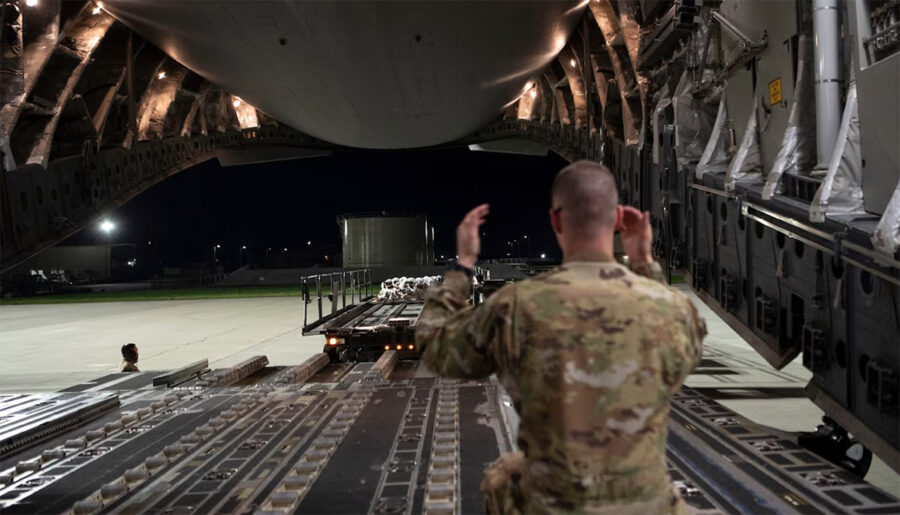
It’s a proxy war against Russia
Diesen concludes that the war in Ukraine has become a proxy conflict where the primary goal of the NATO Cartel is to weaken Russia. He argues that this strategic objective overshadows any genuine efforts to help Ukraine, as evidenced by the continuous escalation of the conflict and the significant human and material costs borne by Ukrainians.
Related in NewsVoice: Colonel Douglas Macgregor’s Warning: Sweden Sold Itself to Fight Russia
He calls for a reassessment of Western policies, emphasizing the need for genuine efforts to help Ukraine rather than using it as a pawn in great power politics.
”We see now also that Ukraine is losing. This is a war of attrition. Every day, they’re losing scores of men, they’re losing all their military equipment, they’re losing their land, and the country is being destroyed.
And yet, we’re not talking about even negotiating with the Russians. We can offer something. We can offer an end to NATO expansion. That would be a huge bargaining chip if we want to get a good deal from the Russians.
But we don’t. Instead, we’re talking about how about we start expelling Ukrainian civilians from Poland or Germany, if we just stop giving them social benefits, they have to go home. And then we can fill up the trenches with more men who don’t want to fight.
So this is all being done again under this umbrella of trying to help Ukraine.
So that’s my main point. I think there’s a difference between hating Russia and loving the Ukrainians. And if we’re willing to fight the Russians to the last Ukrainians, I don’t think it’s based on anything to do with being pro-Ukrainian or helping the Ukrainians.
It’s more about targeting the Russians. And as all the American leaders keep saying all the time, this is what the war is about. We get to knock out the Russians and focus all our resources on the Chinese.
So again, I think this should be the point of departure when we discuss the war in Ukraine. It’s not about helping anyone. It’s about using Ukraine in the very cynical game of great power politics.”
Spech-to-text and summary by NewsVoice. #NATOcartel
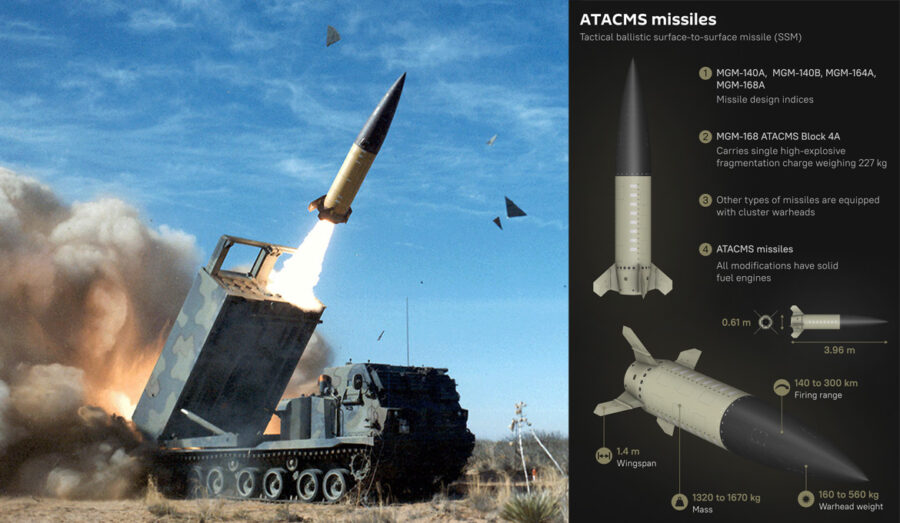

 NewsVoice är en nättidning för oberoende nyheter, debatt och analys.
NewsVoice är en nättidning för oberoende nyheter, debatt och analys. 